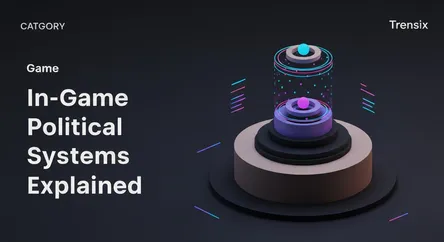Game
In-Game Political Systems Explained

Explore how complex political systems and governments shape the lore, narrative, and player choices in modern video games.
What is it?
An in-game political system is the framework of government, factions, and power structures that define the society within a video game's world. This lore element goes beyond simple good-versus-evil narratives, creating a complex web of laws, ideologies, and diplomatic relationships. From the warring noble houses in Fire Emblem to the corporate-controlled dystopia of Cyberpunk 2077, these systems establish the core conflicts and motivations that drive the story forward. They dictate how different groups interact, who holds power, and what societal rules players must navigate, adding incredible depth and realism to the game's setting.
Why is it trending?
Gamers increasingly crave deeper, more immersive experiences, and complex political lore is key to achieving this. Developers are moving away from simple plots to build intricate worlds that feel lived-in and dynamic. Political systems introduce moral ambiguity and high-stakes conflict that resonate with players. This trend is fueled by the success of narrative-driven RPGs and grand strategy games where player choice matters. Crafting a believable world with competing political interests makes the game's universe more compelling and memorable.
How does it affect people?
Political systems directly impact the player experience by shaping gameplay and narrative choices. Players are often forced to align with specific factions, influencing which quests they can access and how NPCs react to them. These decisions can have far-reaching consequences, altering the game's world and leading to different endings. This creates a highly personal journey, encouraging players to think critically about their actions and allegiances. It enhances replayability, as players can start a new game to explore a different political path and see how the world changes based on their choices.